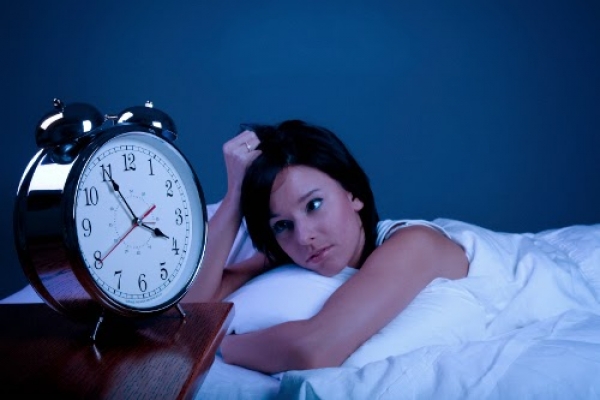About 1 in 5 patients taking Direct Acting Antivirals will get insomnia. Here is a post of mine from some years ago about how to manage it.
Insomnia is a common and often frustrating problem. Part of the reason it's frustrating is that, unless an accurate diagnosis of the root cause(s) is made, treatments tend to be temporary band aid solutions and rapidly lose their effectiveness.
Do you have an underlying medical problem?
There are a range of medical condition that can cause insomnia.
Chronic pain, sleep apnoea or a need to urinate frequently caused by an enlarged prostate gland can all cause insomnia.
Diseases like arthritis, cancer, heart failure, lung disease, gastroesophageal reflux disease (GERD), overactive thyroid, Parkinson's disease and Alzheimer's disease have all been implicated.
Mental health problems like stress, anxiety and depression can also cause problems.
Many of these issues are amenable to treatment, and by fixing the root cause, sleep patterns can return to normal.
Are your medications to blame?
- Alpha-blockers
- Beta-blockers
- Steroids
- SSRI antidepressants
- ACE inhibitors
- ARBs
- Cholinesterase inhibitors
- H1 antagonists
- Glucosamine/chondroitin
- Statins
Note that you should consult with your doctor before stopping any prescribed medications.
Are your daily habits contributing?
There are many habits and work patterns that promote poor sleep
- Not enough light at midday and too much light (device screens) at night
- Shift work - this scrambles your body clock (circadian rhythm)
- Eating late in the evening
- Fluids in the evening (we were all trained as children to wake up and not wet the bed)
- Excess caffeine, nicotine and other stimulant (ie Red Bull) consumption
- Using stimulants in the afternoon and evening
- Not getting enough exercise
- Too much alcohol - although alcohol is a sedative it prevents entry into deep sleep
Could your sleep hygiene be improved?
If you use your bedroom for other activities than sleep and sex you are missing the opportunity to program your thinking along the lines of go to bed, go to sleep.
You will sleep better if:
- You have got a good dose of daylight during the day, and less light at night
- Your bedroom is pitch black
- Your bedroom is quiet
- You bedroom is not too hot, not too cold
- You have a comfortable mattress
- You have a comfortable pillow - not too high or too low, too soft or too firm - get one that's just right (and remember they wear out over time)
- You have enough blankets so you're not too hot when you go to bed, but also don't wake up freezing when it cools off in the early morning
What can my doctor do for me?
For a start, any doctor worth his/her salt can discuss everything with you and look for root causes. It's always best to fix the source(s) of problems.
A simple plan (from Dr Margaret Hardy)
- Work out average amount of actual sleep per night from sleep diary
- Choose a regular wake-up time
- Set a regular bedtime by subtracting average sleeping hours from the planned wake-up time
- Review at weekly intervals and, if tired, increase time in bed by going to bed 30 minutes earlier
Your doctor can also provide medications including:
- Melatonin (which re-sysncs your body clock and is thus really good for shift work and jetlag
- First generation sedating antihistamines (promethazine, doxylamine)
- Benzodiazepines (temazepam, zopiclone, zolpidem and many others) which are good for short term (particularly stress related insomnia). Long term you become first tolerant (needing ever increasing doses) and then addicted (needed the medication or you won't be able to sleep)
- Antidepressants like amitriptyline and mirtazipine which are used (usually in low doses) not to treat depression but for their common sedating side effect. Their advantage over benzodiazepines is that tolerance is far less of an issue, so they can be used longer term.Don't despair. Most people can get
Don't despair. Most people can get a far better nights sleep with a few simple changes.
Talk to your doctor, or see one of our expert GPs online from the convenience of home.
Dr James Freeman


